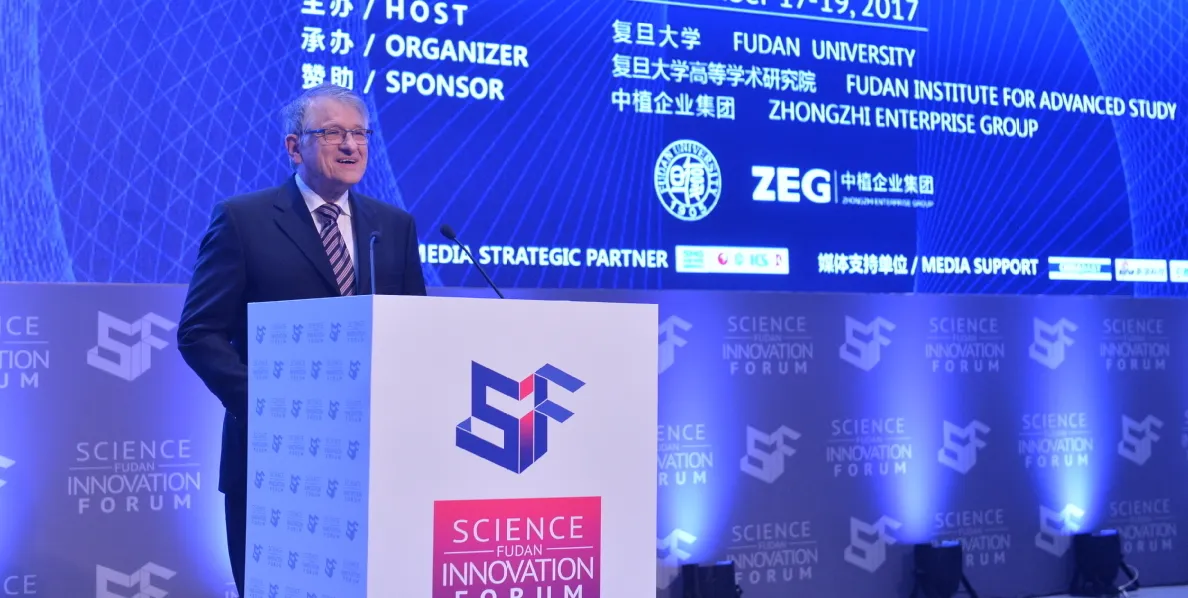Table of Contents
One of China’s top-ranked universities recently revoked academic freedom from its governing charter and adopted Communist propaganda from the Chinese education ministry. Fudan University’s revised constitution places it under the administrative purview of the Chinese government.
The news poses hard questions for Stanford, which has a long history of collaborating with Fudan.
The new constitution, which was posted online in English but has since been taken down, includes several concerning revisions:
- University administrators are encouraged to “adhere to the leadership of the Communist Party of China, fully implement the party’s education policy, and adhere to the guiding position of Marxism.”
- The mission of the university has been modified to “serve the Community Party of China” and “serve to develop a socialist system with Chinese characteristics.”
- The revised charter explicitly encourages the university to teach “Xi Jinping Thought” to its students.
Reading the revised document for the first time was a surreal experience. The Chinese government has a long history of brutally repressing free expression, but these revisions are particularly sinister, especially when considered alongside Stanford’s existing partnerships with Fudan.
Stanford co-directs the Fudan-Stanford Institute for China Financial Technology and Risk Analytics, a fintech research institute hosted on Fudan’s campus. Stanford has also hosted scholars from Fudan through the Asia-Pacific Research Center and invited several professors affiliated with Fudan to give talks on campus.
The ties don’t end there. Fudan’s School of Management even names the Stanford Graduate School of Business as a “collaborative university” partner on its website. And in April of last year, Fudan hosted a recruiting session for the Knight-Hennessy Scholars Program.
Stanford is not the only elite American university that works with Fudan. The Chinese university has an extensive reach, with exchange programs at over 17 American universities.
In 2008, Yale partnered with Fudan to establish the Fudan University Education Development Foundation and now operates a full research institute on Fudan’s campus. Harvard also operates a joint medical training program with Fudan and offers an executive MBA with their business school.
Moreover, the eroding of academic freedom in China is not limited to Fudan. After the Chinese government’s brazen co-opting of Fudan, two other leading Chinese universities, Nanjing University and Shaanxi Normal University, have also announced similar changes to their governing charters in late December of last year. Both Nanjing and Shaanxi Normal also have ties to Stanford.
Fudan’s fate demonstrates that academic autonomy in China, which was already hard to find, is now systematically being erased by the government. In light of these developments, it’s time for Stanford’s leadership to answer a serious question. Do they value academic freedom?
If they do, then they urgently need to reconsider Stanford’s relationship with Fudan and other compromised Chinese universities. By refusing to establish joint research centers and participate in academic exchanges with these universities, Stanford can send a strong signal to the Chinese government that it is not willing to compromise on academic freedom. Taking a firm stand would also encourage other American universities to follow suit.
Naturally, partnerships between American and Chinese universities have long-term diplomatic and academic benefits, fostering cross-cultural exchange and advancing scientific discovery. However, continuing to partner with universities such as Fudan risks undermining America’s democratic integrity and calls into question whether universities like Stanford are serious about standing up for academic freedom on the global stage.
Greater government control of Chinese universities may also pose a national security risk for American labs that collaborate with Chinese counterparts on sensitive research projects.
Ultimately, the Communist Party’s hijacking of Fudan sets a precedent that is simply too dangerous to ignore. Who’s to say that Chinese outposts of American universities like NYU-Shanghai and Duke-Kunshan won’t find themselves on the business end of a Ministry of Education “amendment” process in the near future?
Stanford’s embrace of open inquiry is carved into its founding motto, “The wind of freedom blows”. Shouldn’t its international partners be held to this standard too?









